5 reasons why this rainforest-destroying animal feed should be banned on Fonterra farms.
Palm kernel expeller or PKE is a rainforest-destroying animal feed. It’s fed to dairy cows when there is not enough grass to feed them. Greenpeace is campaigning for Fonterra to end the use of palm kernel on all Fonterra farms across Aotearoa, because of problematic links to deforestation and other environmental destruction. But why is palm kernel so bad?
Here are five reasons why you should join our campaign to end the use of palm kernel in Aotearoa.
1) Palm kernel contributes to rainforest destruction in Southeast Asia
Every year, the New Zealand dairy industry imports more than two million tonnes of palm kernel from Southeast Asia. This palm kernel is a product of the palm oil industry, which is notorious for illegal operating and rainforest destruction.
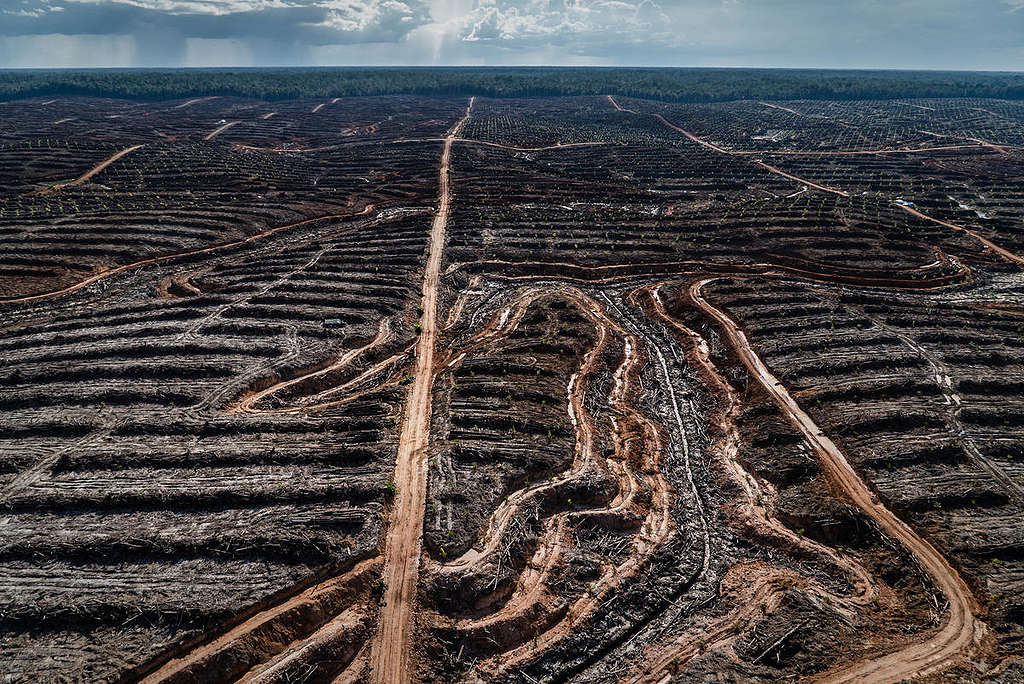
Recently, evidence has linked all of the companies exporting palm kernel to New Zealand with illegal operations in Indonesia – and associated historic deforestation. Not only this, but a Rainforest Action Network investigation revealed that two of the companies providing palm kernel to Fonterra had bought palm kernel from plantations that were operating inside the Rawa Singkil wildlife reserve, which features in David Attenborough’s Secret Lives of Orangutans.
The Southeast Asian rainforests are biodiversity hotspots. They’re also the lungs of the earth, critical in the fight against climate change. By using palm kernel grown in the ashes of destroyed rainforests, not only is the New Zealand dairy industry complicit in destroying these paradise rainforests but they are actively weakening our fight against the climate crisis.
2) Palm kernel contributes to the draining of peatlands
Peatlands are also critical biodiversity hotspots and carbon sinks – and they’re a vital part of the rainforest ecosystem. But the palm industry threatens them too.
The palm industry regularly drains peatlands in order to plant row upon row of palm trees. These are grown to produce palm oil and palm kernel. However, the peatlands store carbon that is thousands of years old. When this carbon is released into the atmosphere, it accelerates climate change.
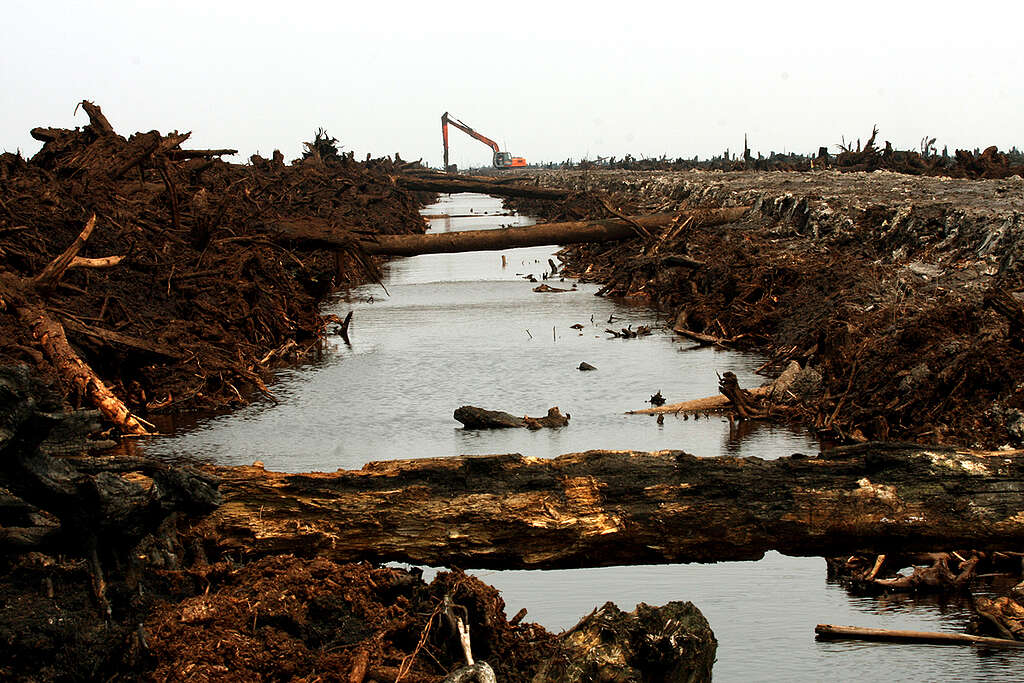
Not only this, but peatlands are home to many unique and endangered species of wildlife. These are creatures like crocodiles and bears, as well as many plants that live nowhere else in the world. Draining the peatlands – their homes – is driving these species towards extinction.
3) Palm kernel endangers wildlife
The rainforests and peatlands of Southeast Asia are home to many unique and vulnerable species. These species are increasingly threatened by habitat loss, forest fires, and more as the palm industry expands its operations.
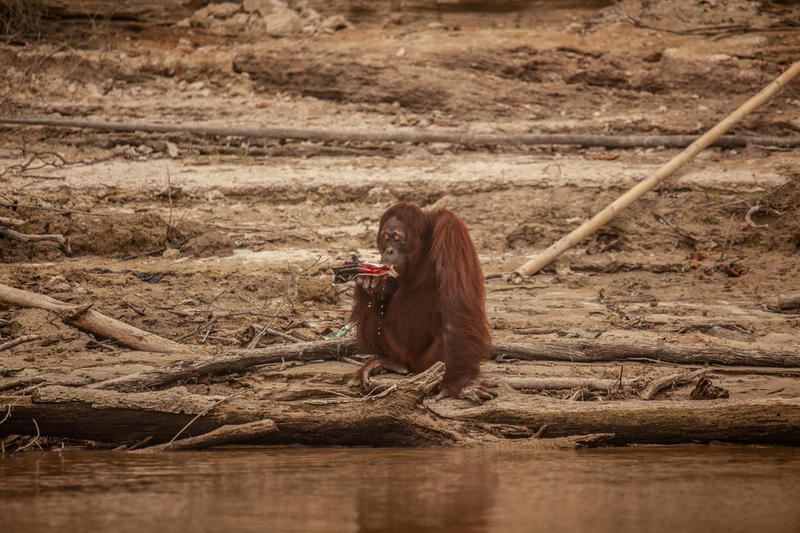
In Indonesia, rainforest and peatlands in the Rawa Singkil wildlife reserve, featured in David Attenborough’s Secret Lives of Orangutans, is being destroyed illegally to make way for more palm plantations – which New Zealand palm kernel importers have purchased PKE from. This is one of the last refuges for critically endangered Sumatran Orangutans – and they’re not the only ones impacted.
Other species, like Bornean elephants, Sumatran tigers and tree kangaroos are also at risk.
4) Palm kernel is linked to human rights violations
All of the destruction caused by the palm industry – the deforestation and peatland drainage – displaces Indigenous people and local communities from their homes. It also causes fires that create a toxic haze and endanger millions of lives.
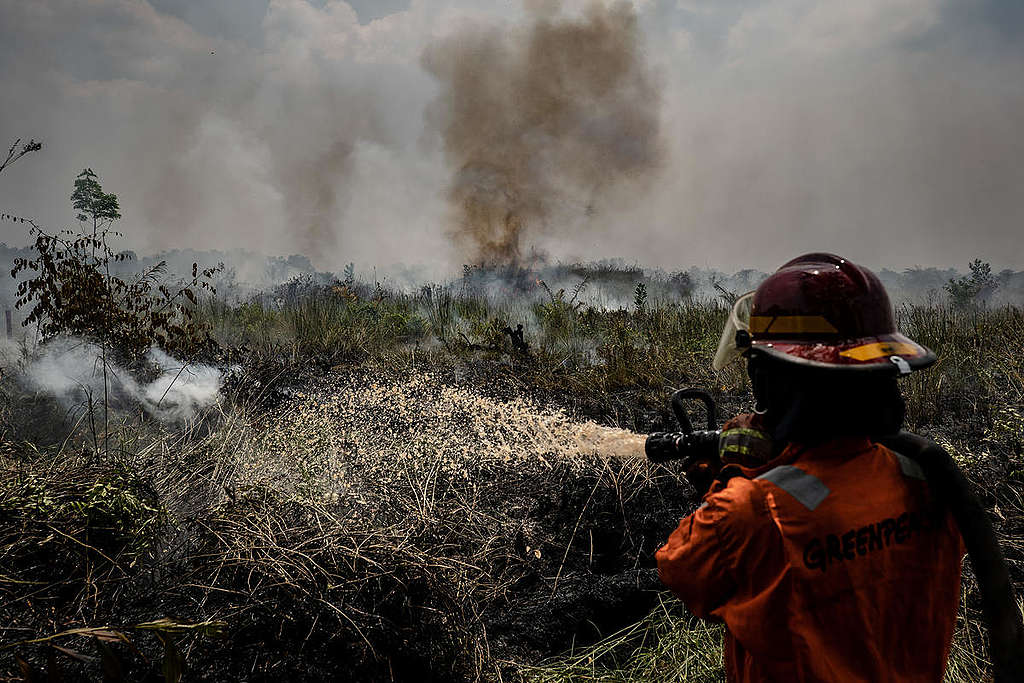
Large areas of Indonesia’s forest grow in deep, swampy peat, which stores huge quantities of carbon. Oil palm plantations need dry land, so palm oil companies drain the peat, making it highly flammable. Fires can then rage out of control, releasing yet more carbon dioxide. Indonesia is the third greatest emitter of greenhouse gases in the world, largely because of deforestation. Whenever fires break out, thick clouds of smoke blanket Indonesia and other countries, choking people and causing major health problems.
Indonesia’s forests have been bulldozed and replaced with hectares upon hectares of plantations. Palm oil companies are encroaching on local communities, and there are reports of violence and people being forced from their land.
5) Palm kernel props up the intensive dairy industry here in Aotearoa.
New Zealand’s intensive dairy industry uses so much palm kernel because there are simply too many cows. There are so many cows that there isn’t enough grass to feed them all. So in dry summer months, the dairy industry imports huge amounts of this gravelly red powder to feed the oversized dairy herd.
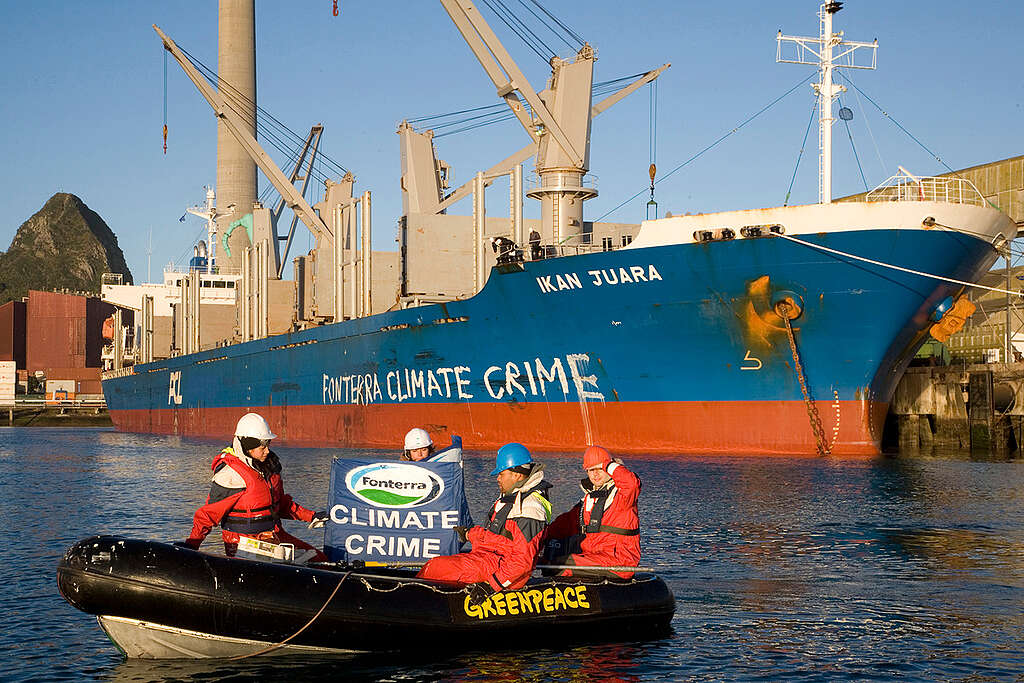
Fonterra and the dairy industry is New Zealand’s worst environmental polluter. They are cooking the climate with superheating methane gas, contaminating drinking water with nitrate, and making lakes and rivers across the country unswimmable. And, of course, they are contributing to the destruction of rainforests overseas in order to feed their cows. It’s a vicious cycle that will just continue unless something changes – and that’s why Fonterra must end the use of this blood-soaked animal feed on all of their farms across Aotearoa.
Join the campaign to end Fonterra’s use of this destructive feed for good – sign the petition now!
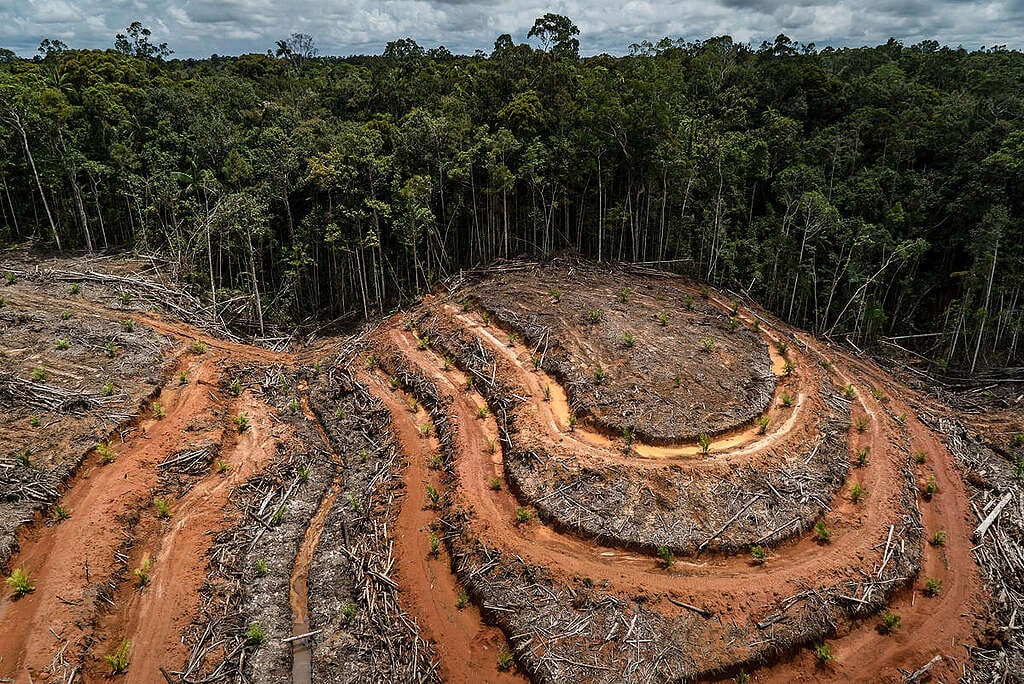
Call on Fonterra to end the use of rainforest destroying palm kernel on its farms by banning palm kernel in the Farmers’ Terms of Supply.
Sign the petition


